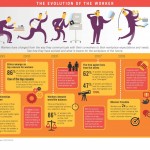 In many ways, writing a resume for a mechanical engineering job is no different than writing a resume for any other type of job. You want to highlight specific achievements that show your suitability for the position, pay attention to the details when it comes to grammar and spelling and avoid including outdated sections like an objective statement.
In many ways, writing a resume for a mechanical engineering job is no different than writing a resume for any other type of job. You want to highlight specific achievements that show your suitability for the position, pay attention to the details when it comes to grammar and spelling and avoid including outdated sections like an objective statement.
However, there are some aspects to writing an engineering resume that are specific to the field. Including these sections and focusing on the most desirable skills will improve your chances of landing an interview and, ultimately, a great job. Whether you are writing a resume for your first job out of school or you are an experienced professional looking to move into a position with more responsibility, keep these tips in mind.
Focus on the Key Skills
Obviously, employers expect that applicants to mechanical engineering jobs will have the technical skills required to do the work. Generally speaking, they’ll infer that you have those skills by looking at your education and work experience thus far. Holding a master’s degree in mechanical engineering, for instance, implies that you have at least a baseline set of skills in the field.
Therefore, your resume needs to convey that you have the other skills that employers require, in addition to the technical knowledge of engineering and mathematics. These soft skills aren’t always immediately obvious based on your degree, so you need to focus on showing your strengths in these areas. Some of the most in-demand soft skills for mechanical engineers include communication, teamwork, problem-solving and creativity. As you describe your experience, include examples and use language that shows you have these skills, and know how to apply them within the context of the engineering environment.
At the same time, as you describe your experience, avoid overusing industry jargon. Including some terminology indicates your knowledge of the field, but filling your resume with jargon and unnecessarily complicated terminology can backfire. Remember that most resumes will be reviewed by computer before a human sees them, and that it’s often a human resources department that forwards promising candidates to managers. If your resume is peppered with incomprehensible language, you might not make it past the first review. Focus on showing your skills through your accomplishments, not big words.
Include Specific Projects
 Nothing will highlight your abilities and skills better than listing the projects that you have worked on during your engineering career, or if this is your first resume, your time in engineering school. Highlighting specific projects, your role in them and the outcomes of those projects gives employers concrete evidence of your abilities. Depending on how many projects you have worked on, you may need to list them on a separate sheet; be sure to include the project name and description, when you worked on it and what you did as part of the project team. Be prepared to discuss your projects during your interview, as employers are likely to have more questions about what you did.
Nothing will highlight your abilities and skills better than listing the projects that you have worked on during your engineering career, or if this is your first resume, your time in engineering school. Highlighting specific projects, your role in them and the outcomes of those projects gives employers concrete evidence of your abilities. Depending on how many projects you have worked on, you may need to list them on a separate sheet; be sure to include the project name and description, when you worked on it and what you did as part of the project team. Be prepared to discuss your projects during your interview, as employers are likely to have more questions about what you did.
Be Concise and Precise
A great mechanical engineering resume is crisp, concise and focuses on precise details – much like engineering itself. It’s important to look at your resume with a critical eye and remove any details that aren’t immediately relevant to the position. Avoid information overload; remember that recruiters generally only spend a few seconds reviewing a resume, and too much information can turn them off as much as too little information. Focus on the most important details, realizing that you can elaborate in your cover letter and interview.
Precision is also important. Engineers are required to be precise by nature, so avoid using vague words or descriptions in your resume. It might sound silly, but those little details can show an employer just what kind of engineer you are and make the difference between getting called for an interview or not.
Writing any resume can be challenging, as it’s one of the most important documents you’ll ever create. However, taking the time to tailor your resume to the engineering field, and addressing the details that employers notice most often, can increase your chances of impressing employers and landing your dream job.








